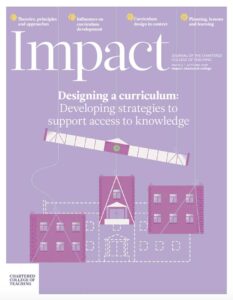Developing maths skills in the new A level Biology curriculum

“Nature is written in mathematical language.”
Galileo Galilei
Background
In 2015, biology teachers began teaching a new A level curriculum, which whilst not greatly different in terms of content, did have a few notable changes:
- Introduction of the practical endorsement
The loss of assessed practical work and the implementation of a ‘practical endorsement’ award, achieved through compulsory experiments (where understanding is assessed through terminal examinations, but skills are assessed by the teacher).
- More challenging ‘application-style’ questions
A greater emphasis on the application of concepts to specific scenarios rather than knowledge recall (something we are also experiencing in the new biology GCSEs).
- Challenging mathematical content of examinations
It is a requirement that 10% of the marks on the A level are awarded for mathematical skills. I’m sure that many biology teachers will attest to the fact that the style of questions seen in the recent A levels are extremely demanding, and that multi-step calculations require a high level of mathematical literacy (Department for EducationThe ministerial department responsible for children’s services and education in England , 2014).
There is a distinction to be made between being numerate – able to understand, learn and apply mathematical processes to carry out calculations, and being mathematically literate — able to dissect a problem, understand the vocabulary in the question, and apply procedures to real life contexts. Hoogland (Hoogland, 2003) describes mathematical literacy as ‘the functional aspect of mathematical knowledge. It is about individual competencies to use mathematical knowledge in a practical, functional way’. Even those who study A level maths can still struggle when faced with some of the new-style biology questions in examinations.
Part of our role as educators is to ensure that our students are best prepared for their examinations and for the study of science in their future university courses or careers. Therefore, biology teachers have been left with something of a challenge – how to ensure that alongside our teaching of subject content and practical skills, we are also providing sufficient opportunities to develop, practise and refine mathematical skills, so that we do not have students who cannot access 10% of the marks, like one of my current Year 13s, who recently said ‘I just leave out all the maths questions ‘cos I know I can’t do them!’
The challenges of developing maths skills
The greatest challenge when considering the increased mathematical demand of the A level is, of course, the prior attainment of the students. They may have very different levels of prior attainment, and if you are teaching in a college, may have had very different experiences at GCSE. Student motivation and resilience also needs to be addressed.
The teacher’s own knowledge and experience can be similarly variable. In my department, only one biology teacher has A level maths — for most of us, it was a long time since we had used logarithmic scales and the first time we had taught it! Tackling teacher confidence and willingness to engage in CPD can be as important as motivating the students.
As with all new specifications, we have a limited number of past questions to use with students. The teaching resources available are mainly skills workbooks, which are very procedural and provide few examples of application in unfamiliar contexts.
I have been working on how to tackle these issues and improve students’ attainment.
Mapping the delivery of maths skills
- Spend time working out where new skills can be introduced in the curriculum and then where they will be revisited and practised. Most specifications have these mapped out against the subject content, but teachers tend to focus on the content and less on these skills.
- Investigate when other subjects are teaching these skills. Discuss with colleagues whether a unified approach to delivering them is possible.
Examples include:
Geography – statistical tests such as correlation coefficients
Chemistry – logarithmic scales, drawing tangents and calculating rates
Physics – rearrangement of equations, standard form and unit conversions
Psychology – Statistical tests, experimental design and sampling methods
Economics / business – Interpretation of graphs, formulae and percentage change
- Plan time to revisit and refine skills throughout the two-year course. Develop short activities to recap and use any current research or news stories to analyse ‘real-life’ data.
- Liaise with your maths department to ensure that if the new Level 3 Core Maths course is being run it links to the biology curriculum.
Training the teachers
- Students are not the only ones who can lack confidence when tackling these maths skills.Often teachers have not taught them before or used them in a long time. Investment in quality CPD to support them in their teaching is vital to overcoming this barrier and there are many courses being run (Science Learning Partnerships, the PTI and STEM Education centres for example) where training can be accessed.
- Often there is expertise in the department or in other departments. In our school we were fortunate to be allowed a departmental CPD day to develop our own maths skills. Teachers were surveyed about their own skills and the day was developed around our common needs. Teachers from the maths department were invited in to deliver some sessions, whilst in others we worked through different calculations together and helped one another. We also evaluated and improved a set of resources I had developed to integrate maths skills in different topics throughout the two-year course. It was one of the most positive and beneficial in-house CPD days we have ever had!
References
This article was published in September 2018 and reflects the terminology and understanding of research and evidence in use at the time. Some terms and conclusions may no longer align with current standards. We encourage readers to approach the content with an understanding of this context.










